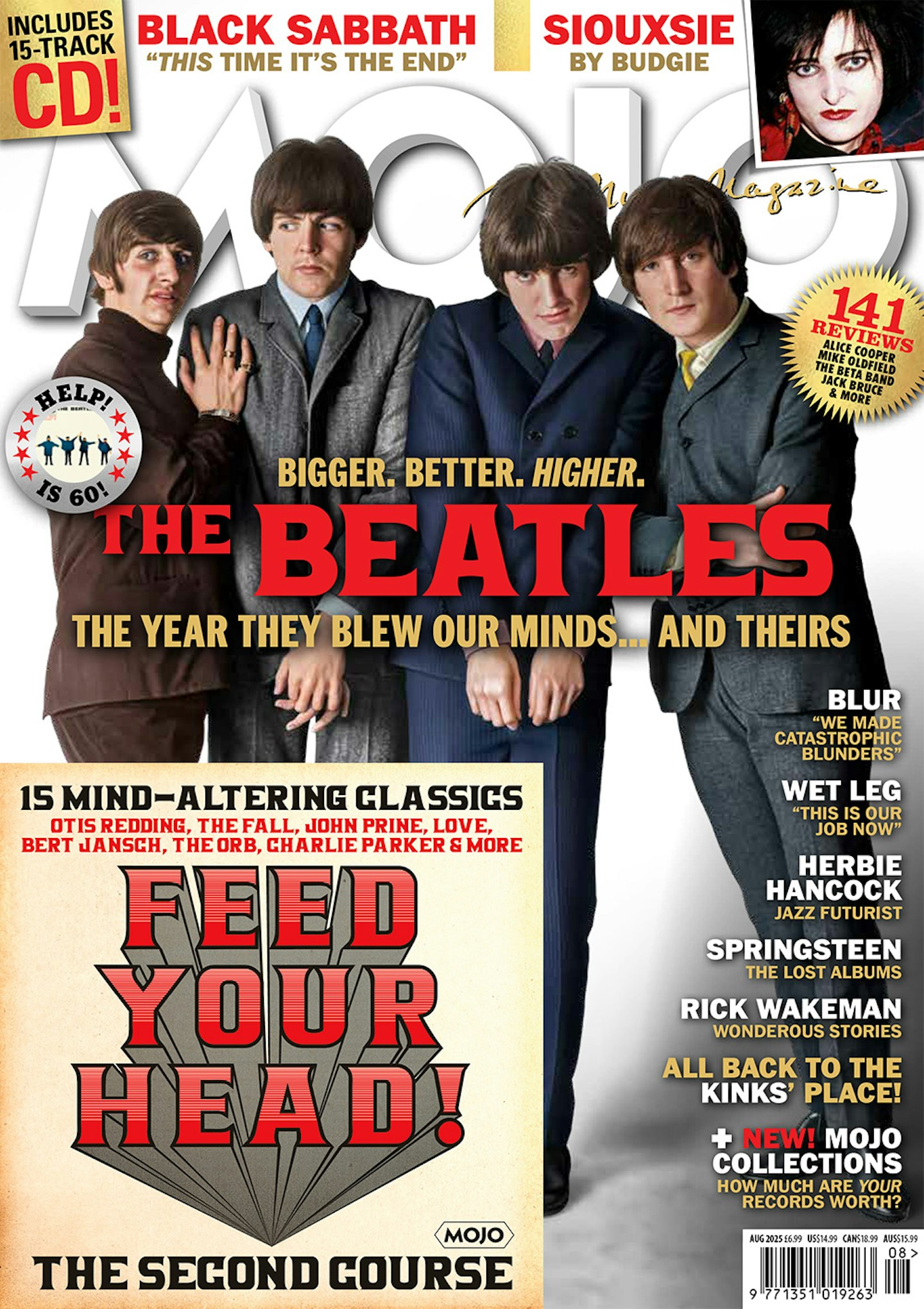Speaking in the latest issue of MOJO, prog keyboard wizard Rick Wakeman has discussed working with David Bowie on 1969’s Space Oddity and Hunky Dory in 1971 and revealed why he turned down Bowie’s offer to join The Spiders From Mars in favour of becoming a member of Yes.
After quitting the Royal College Of Music in 1969, Wakeman, a former prize-winning child prodigy, started working as a session musician when he got a call from producer Visconti to play on Bowie’s second album. A gig Wakeman claims he got chiefly because he was one of the few jobbing musicians who could get the then-voguish mellotron to work.
“A few people could play it. The difficulty people had was keeping it in tune. I played around with one in Morgan Studios in ’68, doing a session for Tony Visconti for a band called Junior’s Eyes. The only way I found of keeping it in tune was, instead of playing chords, I’d never play more than two notes at one time. But then also I could use the pitch control to keep it in tune,” Wakeman tells MOJO’s Tom Doyle. “Later, I got a call from Tony: ‘I’m at Trident Studios with Gus Dudgeon and David Bowie. David desperately wants the mellotron to go with the other strings, and nobody can keep the effing thing in tune.’ So I walked into Trident and met David for the first time. He said, ‘Gus and Tony say, for you, this is a piece of cake. Ever played a piece of cake before?’”
The single version of Space Oddity became Bowie’s first hit in July that year, and Wakeman went on to record the distinctive piano part on Cat Stevens’ 1971 hit Morning Has Broken and the glissandos on T. Rex’s Bang A Gong. It was job which he says had more to do with Marc Bolan’s charitable nature than his specific talents.
“I was nine quid short on my rent... [Marc Bolan] said, ‘All I want is… when I nod at you just do a gliss.’ After, I said, ‘You could have done this’. He said, ‘You needed your rent, I could have lent you the nine quid but you wouldn’t have taken it…’”
That summer, Bowie invited Wakeman to contribute to his fourth album, Hunky Dory. Wakeman’s versatile and virtuosic playing would become a central part of the record, not least his tour de force on Life On Mars?.
“David said, ‘I’m doing a new album, and I want a lot of it to come from the piano,’” recalls Wakeman. “So I spent a very pleasant few days at his house in Beckenham, Haddon Hall. It had a beautiful minstrels’ gallery with a lovely grand piano. David had his guitar, and we sat there, and for about four or five hours, we just went through him playing me the songs. He gave his musicians unbelievable freedom. When he played me Life On Mars?, he said, ‘Treat it as a piano piece… play it as you want to.’”
-
READ MORE: David Bowie's 100 Greatest Songs
Wakeman’s elevating effect on Bowie’s songs led to an invite to join Bowie, guitarist Mick Ronson, drummer Woody Woodmansey, and Trevor Bolder on bass in Bowie’s soon-to-be-rechristened backing band The Spiders From Mars.
While Wakeman played – uncredited – on The Rise And Fall Of Ziggy Stardust And The Spiders From Mars, he turned the offer down in favour of joining Yes, who were starting work on their fourth album Fragile. Sessions that Wakeman remembers took place above a brothel in London’s Shepherds Market.
“I mean, back then, it didn’t seem like such a big deal. But looking back, it was fucking huge, really,” he reflects. “There was no doubt that Spiders From Mars were going to pay more money, because David was already an established star. But what made the decision for me was that Yes were a growing band, and they wanted me as part of it to change their direction. I phoned up David, and he was brilliant. He said, ‘Absolutely the right decision.’”
As a member of Yes and solo artist, Wakeman remains synonymous with prog’s more extravagant musical ambitions and also its follies: Donning a cape onstage and embarking on ambitious projects such 1973’s The Six Wives Of Henry VIIIand the infamous King Arthur On Ice shows staged at The Wembley Empire Pool in the summer of ’75.
Such perceived pomposity made Wakeman and Yes prime figures of ire for the emerging punk rockers, something which he says “didn’t worry me in the least”. Although he scotches the rumour that he threatened to leave A&M when they signed the Sex Pistols as “total bollocks.”
“Basically Derek Green, who was the [UK] head of A&M Records at the time, was told by America that they didn’t want them on the label. He’d already signed them, so he was looking for an excuse to get rid of them,” says Wakeman. “So he used me and [The Carpenters’] Richard Carpenter, saying that we sent them letters saying that we’d leave the label. The press officer thought that I wouldn’t find out because I was living in Switzerland. But they forgot that people flew over all the time, and they brought newspapers. I went nuts.”
“The doctor said, ‘You’ve had a heart attack… you probably had three...’”
Get the latest issue of MOJO to read the interview with Rick Wakeman in full. On the agenda: Yes, capes, booze, onstage curries, and near-death experiences. “There were times where I could have killed Jon Anderson, and he could have killed me… Mind you, he’d have had to get on a ladder.” More info and to order a copy HERE.

Photo: Brian Ward/Getty
